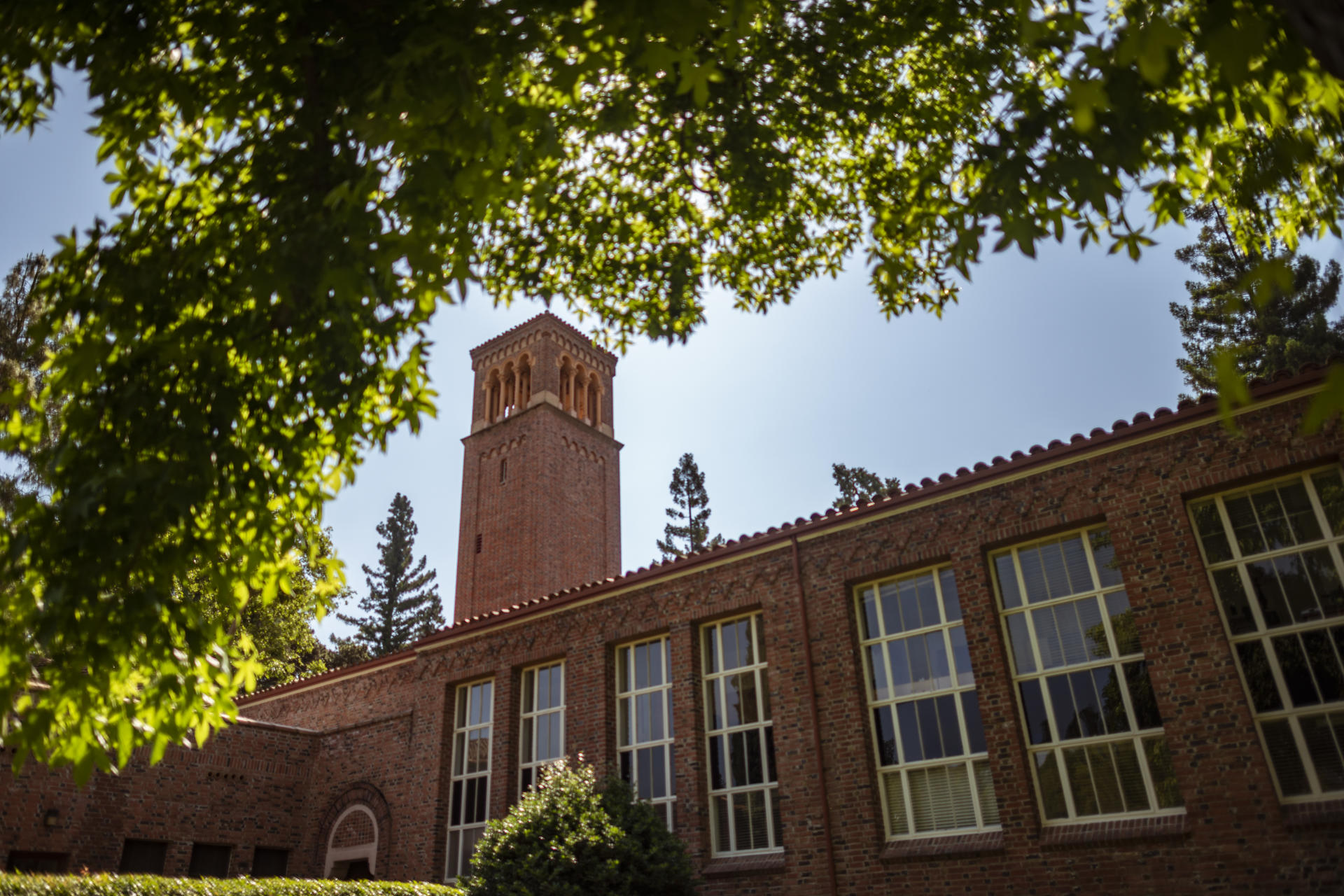A Framework for Courageous Conversation

Trinity Hall is seen on Thursday, May 30, 2019 in Chico, Calif. (Jason Halley/University Photographer/CSU Chico)
Polarizing viewpoints create opportunity for conversation and debate, but too often the quickest and easiest way to respond is with conflict. On Wednesday, protesters and onlookers surrounded a student organization on campus and tensions were high. I was heartened to learn that some of our students made the choice to have courageous conversations. These students modeled respect, compassion, and civility, which our campus community embraces as core values.
Unfortunately, there were some students who violated the Standards for Student Conduct and will face disciplinary action. Reports and videos showed taunting, harassing, threats, and physical violence—none of which are acceptable for any reason and constitute conduct violations. Faculty and staff put themselves between students to try to prevent physical confrontation. Barriers were set up to provide a corridor for foot traffic and establish a safe distance between the club and protesters.
In this politically and emotionally charged environment, we are witnessing uncomfortable interactions. Across the nation, individuals are embroiled in political controversy in ways not seen since the 1960s. As the 2020 presidential election nears, more unrest is likely. Again, I stress the importance of expressing viewpoints in a civil and respectful manner.
To understand the guidelines for these interactions, I share the University’s Time, Place, and Manner of Expression policy. It begins: “Freedom of expression is a cornerstone of a democratic society and is essential to the educational process. Universities have a special obligation not only to tolerate but also to encourage and support the free expression of ideas, values, and opinions, even where they may be unpopular or controversial.”
This policy includes:
- Expression may take a variety of forms, such as speeches, signs, written materials, public assemblies, parades, demonstrations, and artistic representation.
- Freedom of expression, however, is not an absolute right. It coexists with other rights and the need for public order.
- Exercise of the right of free expression should not interfere with University functions, imperil public safety, or obstruct or damage University facilities.
- The University will establish and enforce lawful campus regulations regarding the time, place, and manner of the exercise of free expression by individuals and groups.
- The University may impose reasonable time, place, and manner restrictions on exercise of the right of expression, to preserve the safe and primary operations of the campus.
Such activities may not:
- Unreasonably interfere with student’s ability to participate in the educational process or to gain access to the educational resources and opportunities the University provides;
- Disrupt University activities, including classes in session or other scheduled academic, educational, athletics, cultural arts, and career programs or with use of Meriam Library;
- Obstruct the flow of pedestrian or vehicular traffic;
- Interfere with or disrupt the conduct of University business and operations;
- Employ unauthorized sound amplification or create unreasonable noise disruptive of normal University activities;
- Disrupt the residential tranquility of on-campus housing facilities; or
- Violate any federal, state, local, or University safety code, such as regulations set by the State Fire Marshal.
Illegal speech activity, which is not protected by the First Amendment to the U.S. Constitution or by this policy, includes:
- Terrorist threats
- False advertising
- Criminal harassment
- Promotion of actual or imminent violence or harm
Although free speech is a cornerstone of campus life, it is always second to physical safety. University Police will be present at these events, and when necessary, they will employ measures to ensure that students, faculty, staff, and campus visitors remain physically safe.
Anyone who observes speech or other expressive activity that violates the general conditions above may report such free speech violations by contacting the Student Life and Leadership office, (530) 898-5396.


